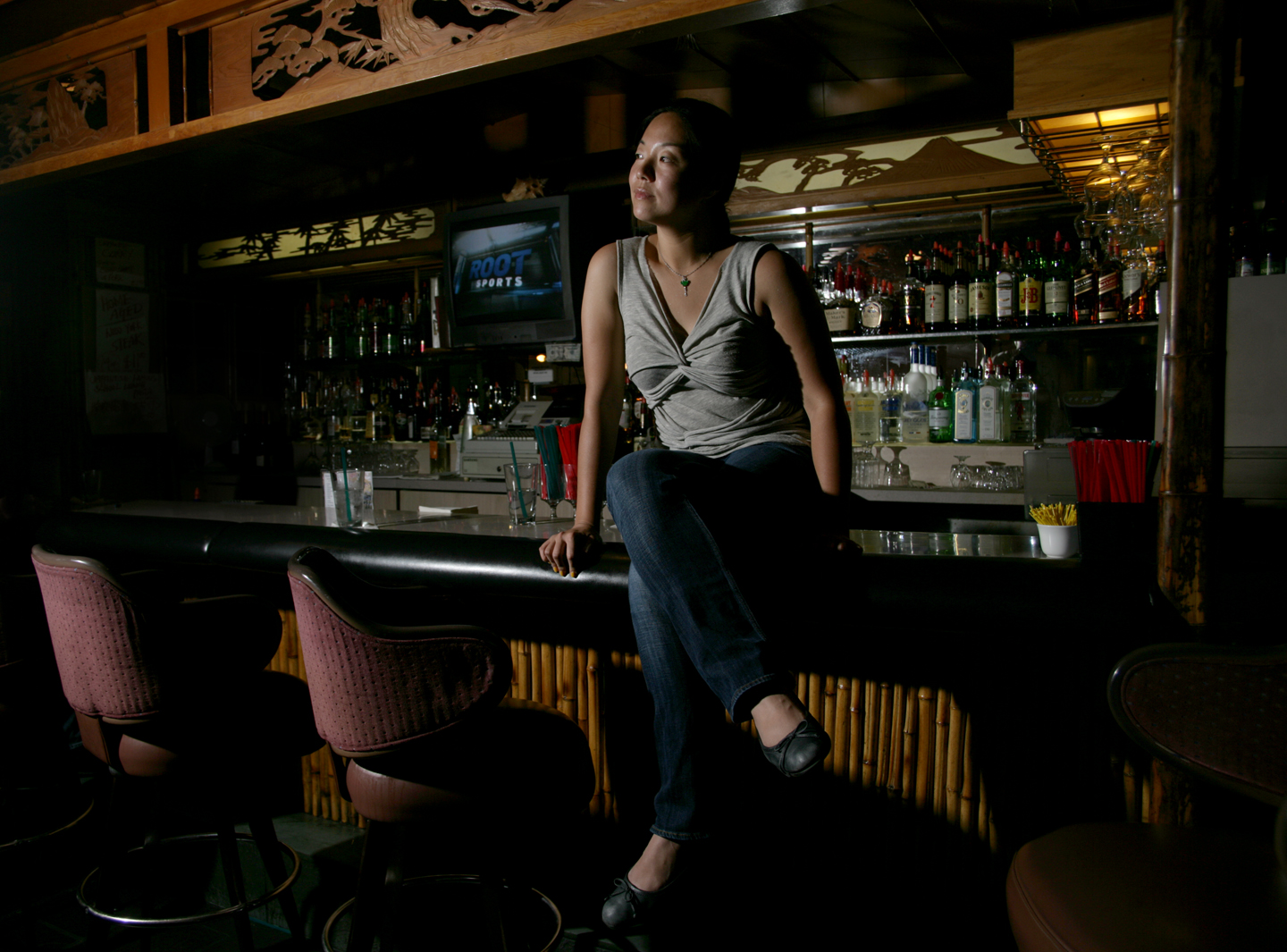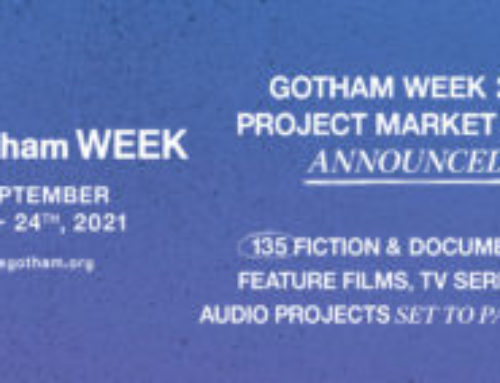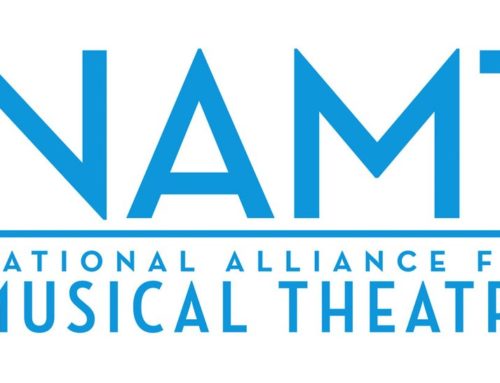The co-founder and director of the edgy theater company talks about Red Light Winter and25 Saints at ACT and embracing ugly theater.
by Seth Sommerfeld
Gutsy upstart theater company Azeotrope made waves last year with Jesus Hopped the ‘A’ Train, which earned the Gregory Award as the best production in Washington. The company returns to the ACT stage with two shows—Red Light Winter and 25 Saints—starting October 23. Red Light Winterfollows a friendship that unravels when a trip to the Netherlands sparks a love triangle with a prostitute. 25 Saints revolves around two Appalachian meth dealers hunted by crooked cops. Azeotrope, which debuted with a 2010 production of Red Light Winter, was co-founded by UW grads Desdemona Chiang and Richard Nguyen Sloniker and operates with a very loose model. Basically, the two only put on a play when they feel like it. If that means a year with no shows, so be it. As a result, any Azeotrope production carries a bit of extra weight, as audiences know the show wasn’t put on to merely to fill a calendar slot.
For our latest Fiendish Conversation, we chatted with Chiang—who also acts as the director for Azeotrope productions—about the two shows at ACT, exploring theater’s ugly side, and gynecology.
What are the elements of Red Light Winter and 25 Saints that really have you excited?
Our company is really interested in doing plays about underrepresented people. So we’re really excited about Red Light Winter because it focuses on a kind of urban isolation that exists in people in New York City, and how people in really urban places struggle to connect. And then 25 Saints, it’s about these kind of forgotten people who live in Appalachia; people who are out in the middle of nowhere, trying to survive. The rest of the country tends to ignore them and not care about them very much. So both plays have this sense of being separate from the world, whether it’s out of a sense of willful isolationism or being neglected by others. That’s something we’re really interested in with both these pieces.
What do you feel are the defining characteristics that set Azeotrope apart from the rest of the Seattle theater scene?
The joke we kind of make is that we do the plays that other folks are afraid to do. It’s so funny; every play we announce we’re doing and then I feel like I talk to all these other directors and they’re like, “Oh my god! I love that play!” And my response is, how come no one’s doing that play? If everyone loves that play, why is no one chomping at the bit? So Azeotrope likes to look at work that’s not just daring and risky, but kind of ugly. Like, uncomfortable. It’s stuff that doesn’t really appeal to a lot of regular theatergoers because it’s not the safest kind of work, whether it’s because it’s just too dark for regular consumption or it’s because there’s naked people doing really perverse things. But this is part of being alive – the ugly bits.
Since Azeotrope is still relatively new, what was your reaction when Jesus Hopped on the ‘A’ Train won the Gregory Award?
It was really exciting! It was definitely a big shock for us, because it was kind of us at the adult’s table. It was really flattering to be in the same category as ACT and the Rep. If anything, it’s just fuel for the fire to keep doing the good work. I don’t think it’s any indication that we’re done doing what we do; we’re still small, we’re still scrappy.
How do you feel like Seattle has influenced your work?
I feel like Seattle’s been the most receptive to me. I think it’s because it’s where I cut my teeth, in a way, because I spent my years as a grad student (at UW). It’s the place where I feel the most welcome, as a director. Even now, with Azeotrope going where it’s going, there’s enough activity to where I can feel like the work I do makes an impact.
What are your general feelings towards critics and the role they play?
I think critics are necessary because people need some kind of vouching for shows. You need a critic there because people don’t want to throw down 40 bucks for something they’re not sure about. Here’s the thing: I would be so for the critics if their reviews didn’t affect my box office. The unfortunate thing is that a critic’s opinion is just one opinion. I just think we need more of them out there, so it’s not just three people who have an oligarchy over what’s good and what’s bad. If there was a Yelp for theater, that’d be great; a fuller, more realized ecosystem of reviews.
If you weren’t a director is there any other line of work you think you might’ve pursued?
I can totally say this without a doubt, if I was not directing theater I would’ve been a gynecologist. I was actually on the path to being a doctor when I was an undergrad at UC Berkeley. I actually have a degree in human biology. My first semester freshman year I had to take an arts elective, which is a requirement that science kids have to do. So I took the easiest class I could take, which was this class called Intro to Acting. And everyone said ‘This is the easiest A, just take it, it’ll guarantee you to go to med school because it’s an A on your report card.’ So I took that class and that’s how I started doing theater. Had I never taken that class, I would’ve just gone through, gotten my degree in biology, gone to med school, and I would be a doctor somewhere. I start obsessing sometimes when I think about it. I’m like, “Awww man, I could be a doctor somewhere! I’m a theater director!’
Red Light Winter and 25 Saints
Oct 23–Nov 24, ACT Theatre, $30



